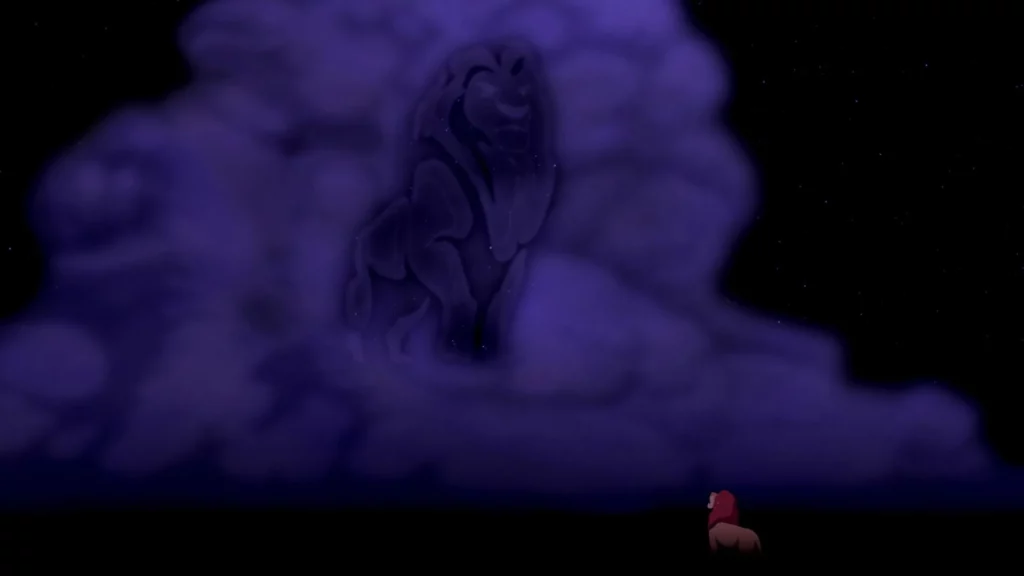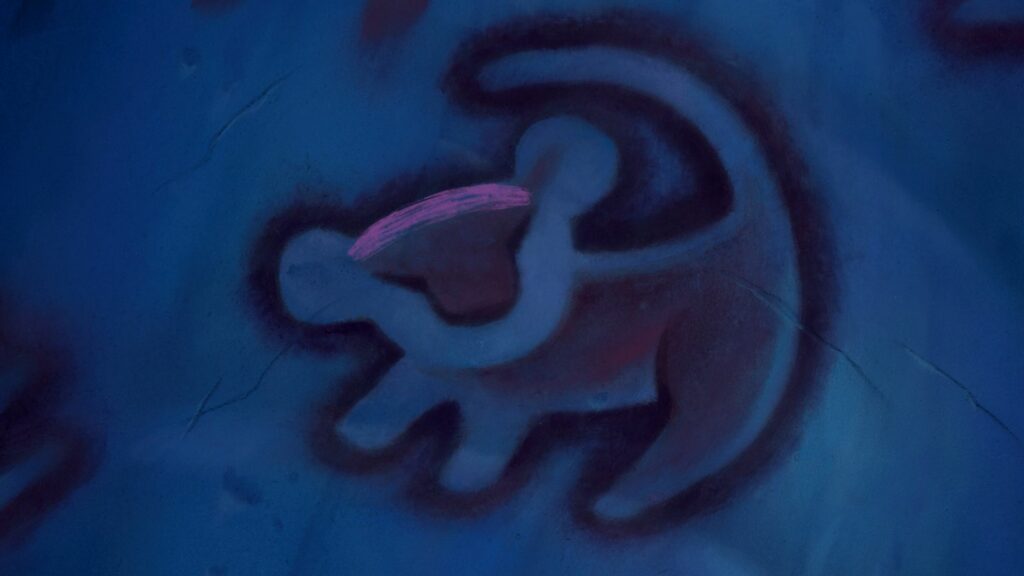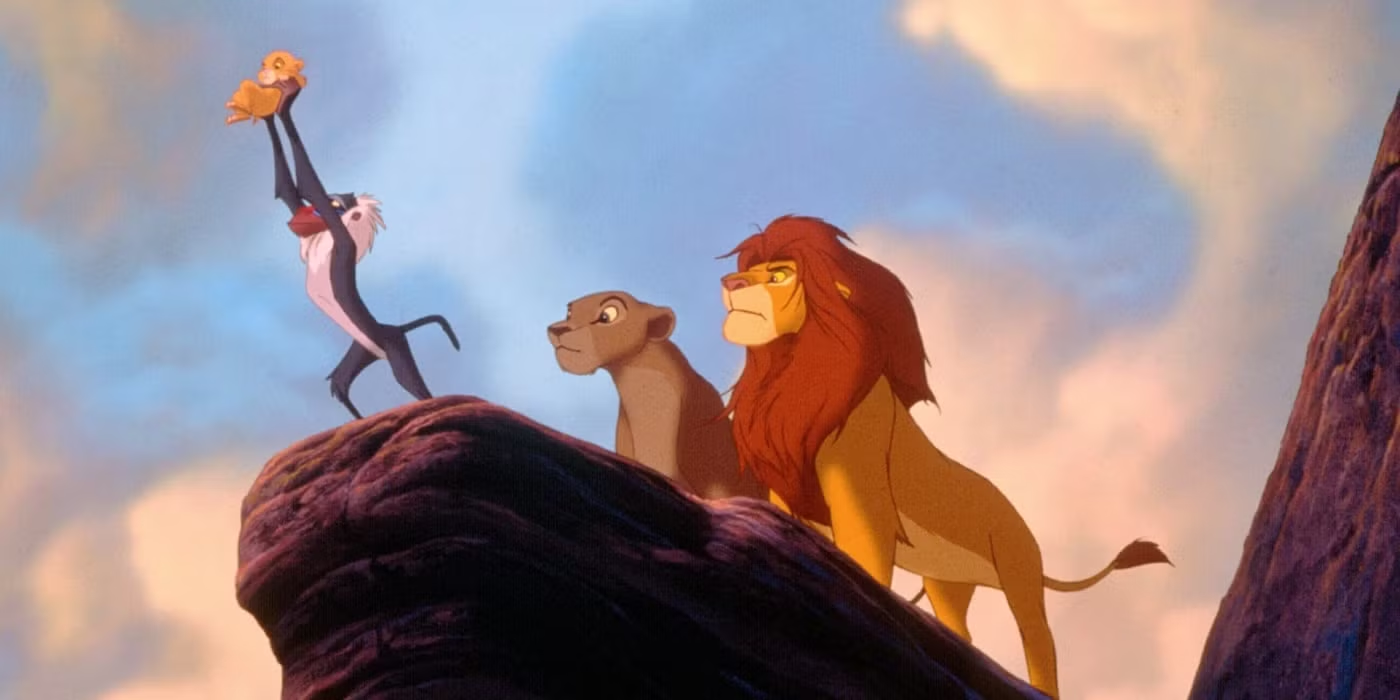Disney’s The Lion King which is strongly based on Hamlet of William Shakespeare which is considered one of the best play ever written, explores identity, responsibility, and the tension between escapism and purpose through two key philosophies: “Hakuna Matata” and “Remember who you are.”
“Hakuna Matata,” Timon and Pumbaa’s carefree mantra, offers Simba an escape from guilt and responsibility, allowing him to avoid his past and future. However, this hedonistic detachment leaves his true self unfulfilled.
In contrast, Mufasa’s call to “Remember who you are” urges Simba to embrace his identity, confront his fears, and restore balance to the Pride Lands. These themes illustrate the universal struggle between avoiding hardship and finding meaning through responsibility.
The Hakuna Matata philosophy

Simba’s time with Timon and Pumbaa in The Lion King represents a period of escapism, where he chooses to live a carefree, hedonistic life, detached from his past and responsibilities. While this time seems fun and free of worries—embodied in their motto “Hakuna Matata” (meaning “no worries”)—it is not truly the “good life” for several key reasons:
1. Avoidance of Responsibility
The core issue Simba faces is his avoidance of the responsibility that comes with being king. After the traumatic events surrounding his father’s death, Simba runs away from the Pride Lands and takes refuge with Timon and Pumbaa. He adopts a carefree attitude, rejecting his responsibilities and the pain associated with them.
Living without facing the truth about his past, he is essentially avoiding his purpose, which creates an underlying sense of emptiness and dissatisfaction. True fulfillment comes not from escaping challenges, but from facing and growing through them.
2. Lack of Purpose
The Lion King emphasizes the importance of the “circle of life” and finding one’s place within it. Simba’s time with Timon and Pumbaa may be carefree, but it’s disconnected from the larger purpose he has in life: to restore balance and justice to the Pride Lands, and to honor his father’s legacy.
Without a sense of purpose, Simba isn’t fully living; he’s merely existing, and this lack of meaning leads to a sense of internal dissatisfaction. It’s only when he confronts his past and accepts his role as king that he truly finds fulfillment.
3. Emotional Suppression
Simba’s life with Timon and Pumbaa allows him to suppress his grief and guilt. Instead of dealing with the trauma of Mufasa’s death and the burden of his perceived responsibility for it, Simba hides away in a false sense of happiness. This avoidance of difficult emotions prevents him from healing properly.
True happiness and peace come not from escaping negative feelings, but from accepting and working through them. Simba cannot experience true joy until he embraces his emotions and responsibilities.
4. Contradiction with the Circle of Life
The “Hakuna Matata” lifestyle is based on a rejection of the natural order, which is symbolized in the circle of life. Timon and Pumbaa are both fun-loving and carefree, but their way of living doesn’t align with the deeper, cyclical rhythm of nature that Simba is meant to fulfill as king.
Simba’s return to the Pride Lands represents his acceptance of the circle of life, including the inevitability of hardship and growth. True balance and harmony come from engaging with the full spectrum of life, including both joy and suffering.
5. Living in Denial
While Timon and Pumbaa’s philosophy is one of avoiding pain and discomfort, Simba’s true self remains unsettled. He has suppressed his grief and guilt, and while he may laugh and enjoy his time with them, he’s ultimately living in denial about the larger truth of who he is and what he must do.
The “good life” that Simba eventually discovers is one that requires him to face his fears, accept his past, and embrace his responsibilities. Living authentically involves confronting the difficult aspects of life rather than fleeing from them.
In essence, Simba’s time with Timon and Pumbaa represents a temporary escape from the pain of his past and the responsibilities of his future. It may seem like a carefree existence, but it lacks the depth, fulfillment, and sense of purpose that comes from taking responsibility for one’s life and destiny. It’s only by returning to the Pride Lands and accepting his role as king that Simba can truly experience the “good life.”
The remember who you are philosophy

Simba should come back, remember who he is, and take on responsibility because his return represents personal growth, the fulfillment of his destiny, and the restoration of balance and harmony to the Pride Lands. Here’s why:
1. Fulfilling His Destiny
Simba is the rightful heir to the Pride Lands, a role that carries not just privilege but responsibility. His lineage, symbolized by Mufasa’s legacy, ties him to the “circle of life,” which emphasizes the importance of each individual’s place in the natural order.
By reclaiming his role as king, Simba fulfills the destiny he was born for, honoring his father’s memory and the values instilled in him.
2. Restoring the Pride Lands
Under Scar’s rule, the Pride Lands have fallen into ruin. The overhunting, neglect, and imbalance in the ecosystem threaten the survival of the pride and the entire kingdom. Simba’s return is necessary to restore justice, balance, and prosperity.
Without Simba’s leadership, the Pride Lands would remain in chaos and suffering, perpetuating Scar’s selfish and destructive rule.
3. Personal Growth and Redemption
Simba’s journey is one of self-discovery and healing. Running away from the Pride Lands allowed him to avoid the pain and guilt of Mufasa’s death, but it left him unfulfilled and disconnected from his true self.
Returning home symbolizes Simba’s courage to face his past, accept his mistakes, and grow into the leader he is meant to be. This act of redemption allows him to reclaim his identity and find inner peace.
4. Living Authentically
Timon and Pumbaa’s “Hakuna Matata” philosophy, while temporarily comforting, is ultimately hollow for Simba. It allows him to avoid responsibility and live a carefree life, but it denies him the depth and purpose that come from embracing who he truly is.
By remembering who he is and stepping into his role as king, Simba aligns his actions with his true nature, finding a sense of fulfillment that escapism could never provide.
5. Protecting His Family and Community
Nala, Rafiki, and the pride look to Simba as their hope for a better future. His absence leaves them vulnerable to Scar’s tyranny.
Coming back means accepting his role as a protector and leader, ensuring the safety and well-being of those he loves.
6. Symbolizing the Victory of Good Over Evil
Simba’s return represents the triumph of justice, love, and integrity over deceit, selfishness, and cruelty. By confronting Scar and reclaiming the throne, Simba restores moral order to the Pride Lands, embodying the values his father taught him.
In embracing his responsibility and remembering who he is, Simba moves beyond escapism to a life of purpose, strength, and connection. His journey is a testament to the transformative power of facing challenges and fulfilling one’s role in the greater circle of life.
Simba’s divine responsibility

In The Lion King, the worlds of Mufasa and Scar represent contrasting realities of abundance and harmony versus scarcity and chaos, serving as metaphors for heaven and hell.
Mufasa’s World: Harmony and Heaven
Under Mufasa’s leadership, the Pride Lands thrive in balance and prosperity. The circle of life is honored, where every creature plays a role in sustaining the ecosystem. This balance reflects harmony, fairness, and abundance. Mufasa’s wisdom as a ruler stems from a sense of responsibility and humility, as he sees himself as a servant of the natural order rather than its master. His kingdom is bathed in sunlight, symbolizing enlightenment, life, and divine grace.
Key elements of Mufasa’s world:
• Balance and abundance: The land flourishes, with food and water available for all.
• Unity: The animals coexist peacefully, respecting the roles they play in the circle of life.
• Leadership rooted in morality: Mufasa leads with justice, compassion, and a deep understanding of the interconnectedness of life.
Scar’s World: Hell and Scarcity
When Scar takes over, he disrupts the natural order for his selfish gain, plunging the Pride Lands into chaos. Scar’s rule is marked by exploitation, greed, and short-term thinking, leading to a barren landscape devoid of resources. His actions embody a hellish existence of scarcity, where survival becomes a desperate struggle. The once-thriving land turns into a wasteland, reflecting the consequences of arrogance, corruption, and moral decay.
Key elements of Scar’s world:
• Scarcity and destruction: The land becomes desolate, symbolizing the absence of harmony and the devastating effects of unchecked greed.
• Division and fear: Scar rules through manipulation and intimidation, fracturing unity and creating an environment of distrust.
• Moral corruption: Scar’s leadership is self-serving and devoid of the ethical principles that sustained Mufasa’s kingdom.
Heaven and Hell as Moral Allegories
The transformation of the Pride Lands under Scar demonstrates how harmony can quickly devolve into chaos when greed and selfishness replace stewardship and integrity. Mufasa’s world represents the ideal state of existence—heaven on earth—where respect for life and moral leadership ensure prosperity. Scar’s reign, on the other hand, is a cautionary tale of how the abandonment of moral principles leads to hellish conditions of scarcity and despair.
The restoration of balance by Simba at the film’s conclusion reaffirms the message that harmony and abundance can only be achieved through courage, sacrifice, and a return to moral responsibility.
Hakuna Matata: A Journey Through Emotional Recovery
Hakuna Matata represents a vital healing phase where one temporarily escapes the weight of trauma to reconnect with joy, presence, and emotional safety. For Simba, it offers a space to breathe, free from guilt and identity crises, allowing time to rebuild from within.
Though it’s not a final destination, this carefree interlude is necessary—it provides the strength and clarity needed to later confront the past and reclaim one’s true self. Healing isn’t always about immediate resolution; sometimes, it begins with simply learning to live again without being crushed by the burden of yesterday.
Conclusion: Meaningless Hedonism vs. Voluntary Acceptance of Suffering Through Responsibility

The philosophies of “Hakuna Matata” and “Remember who you are” in The Lion King encapsulate the tension between meaningless hedonism and the voluntary acceptance of suffering through responsibility. Simba’s carefree life with Timon and Pumbaa represents escapism—an avoidance of hardship that, while temporarily comforting, leaves him unfulfilled and disconnected from his true purpose.
In contrast, Mufasa’s message to “remember who you are” challenges Simba to face his guilt, grief, and fear. By embracing responsibility and enduring the struggles it brings, Simba finds meaning, fulfillment, and his rightful place within the circle of life. The film ultimately shows that a purposeful life, even when marked by suffering, offers far greater rewards than one spent avoiding pain and meaning.


GIPHY App Key not set. Please check settings